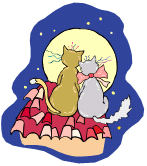
〇月△日 仲のいい関係




―Sherry and Pina were still talking with each other beside the pond. Two cats were sitting side by side.―
"Pina, have you got used to living in this city?"
"I considerably have got used to it. But I know only the university and my house."
"You always come to the university with Bellini, don't you?"
"Yes, I have nothing to do at home."
"There are friendly cats," a man and a woman students were approaching.
Then two students sat on a bench and began to talk with each other.
"I saw a new restaurant, why don't you go there next time?" she said.
"Where is it?"
"It takes me 20 minutes from here. It's an Italian restaurant."
"Oh, that sounds interesting to me."
"We've got to try the new Italian restaurant."
"Are those cats talking like us?" he looked at us and said.
It's none of your business.
"I gotta go, do you want to come? I'll introduce you to Bellini," Pina said.
Bellini, she may know about me.
"I have seen her a few times."
"Really?" Pina was surprised.
"But I saw her for a moment."
"Ah, why don't you go with me."
"Now let's go!"
"Pina, have you got used to living in this city?"
"I considerably have got used to it. But I know only the university and my house."
"You always come to the university with Bellini, don't you?"
"Yes, I have nothing to do at home."
"There are friendly cats," a man and a woman students were approaching.
Then two students sat on a bench and began to talk with each other.
"I saw a new restaurant, why don't you go there next time?" she said.
"Where is it?"
"It takes me 20 minutes from here. It's an Italian restaurant."
"Oh, that sounds interesting to me."
"We've got to try the new Italian restaurant."
"Are those cats talking like us?" he looked at us and said.
It's none of your business.
"I gotta go, do you want to come? I'll introduce you to Bellini," Pina said.
Bellini, she may know about me.
"I have seen her a few times."
"Really?" Pina was surprised.
"But I saw her for a moment."
"Ah, why don't you go with me."
"Now let's go!"
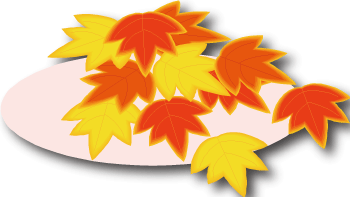
<今日の単語>
considerably かなり、相当
introduce 紹介する;とりいれる
moment 瞬間
considerably かなり、相当
introduce 紹介する;とりいれる
moment 瞬間

<今日の日本語訳>
―シェリーとピーナはまだ池のそばで話をしていた。2匹は隣り合って座っていた。―
「ピーナは、この街にもう慣れましたか?」
「だいぶ慣れたよ。けれども大学と家以外はまだよく知らないけれど。」
「いつもベリーニと一緒に来ているんだね?」
「そう、家にいても何もすることないから。」
「仲のよさそうな猫だね。」そういいながら男女の学生が近づいてきた。
そして2人は側のベンチに座ってまた話し始めた。
「新しくできたレストランを見つけたのだけれど、今度行ってみない?」女の人が話した。
「どこにできたの?」
「歩いて20分くらいかな、ここから。イタリア料理の店なんだけれど。」
「へぇ、おもしろそうだね、行って見ようよ。」
「その新しいイタリアンレストランに行ってみなくちゃね。」
「そこの猫たちも僕らと同じように話しているのかな?」男の方が話した。
大きなお世話だ。
「そろそろ行かないとならないんだけど、シェリーもくる? ベリーニに会わせてあげるよ。」とピーナが話した。
ベリーニ、たぶんむこうは自分のことを知っているかもしれないな。
「でも何度か会ったことあるよ。」
「本当なの?」ピーナはびっくりしている。
「けれど、ちょっと会っただけだけど。」
「それなら一緒にいってみようよ。」
「そうだね、行ってみよう。」
―シェリーとピーナはまだ池のそばで話をしていた。2匹は隣り合って座っていた。―
「ピーナは、この街にもう慣れましたか?」
「だいぶ慣れたよ。けれども大学と家以外はまだよく知らないけれど。」
「いつもベリーニと一緒に来ているんだね?」
「そう、家にいても何もすることないから。」
「仲のよさそうな猫だね。」そういいながら男女の学生が近づいてきた。
そして2人は側のベンチに座ってまた話し始めた。
「新しくできたレストランを見つけたのだけれど、今度行ってみない?」女の人が話した。
「どこにできたの?」
「歩いて20分くらいかな、ここから。イタリア料理の店なんだけれど。」
「へぇ、おもしろそうだね、行って見ようよ。」
「その新しいイタリアンレストランに行ってみなくちゃね。」
「そこの猫たちも僕らと同じように話しているのかな?」男の方が話した。
大きなお世話だ。
「そろそろ行かないとならないんだけど、シェリーもくる? ベリーニに会わせてあげるよ。」とピーナが話した。
ベリーニ、たぶんむこうは自分のことを知っているかもしれないな。
「でも何度か会ったことあるよ。」
「本当なの?」ピーナはびっくりしている。
「けれど、ちょっと会っただけだけど。」
「それなら一緒にいってみようよ。」
「そうだね、行ってみよう。」

<今日の日本語訳&英語訳>
―シェリーとピーナはまだ池のそばで話をしていた。2匹は隣り合って座っていた。―
―Sherry and Pina were still talking with each other beside the pond. Two cats were sitting side by side.―
「ピーナは、この街にもう慣れましたか?」
"Pina, have you got used to living in this city?"
「だいぶ慣れたよ。けれども大学と家以外はまだよく知らないけれど。」
"I considerably have got used to it. But I know only the university and my house."
「いつもベリーニと一緒に来ているんだね?」
"You always come to the university with Bellini, don't you?"
「そう、家にいても何もすることないから。」
"Yes, I have nothing to do at home."
「仲のよさそうな猫だね。」そういいながら男女の学生が近づいてきた。
"There are friendly cats," a man and a woman students were approaching.
そして2人は側のベンチに座ってまた話し始めた。
Then two students sat on a bench and began to talk with each other.
「新しくできたレストランを見つけたのだけれど、今度行ってみない?」女の人が話した。
"I saw a new restaurant, why don't you go there next time?" she said.
「どこにできたの?」
"Where is it?"
「歩いて20分くらいかな、ここから。イタリア料理の店なんだけれど。」
"It takes me 20 minutes from here. It's an Italian restaurant."
「へぇ、おもしろそうだね、行って見ようよ。」
"Oh, that sounds interesting to me."
「その新しいイタリアンレストランに行ってみなくちゃね。」
"We've got to try the new Italian restaurant."
「そこの猫たちも僕らと同じように話しているのかな?」男の方が話した。
"Are those cats talking like us?" he looked at us and said.
大きなお世話だ。
It's none of your business.
「そろそろ行かないとならないんだけど、シェリーもくる? ベリーニに会わせてあげるよ。」とピーナが話した。
"I gotta go, do you want to come? I'll introduce you to Bellini," Pina said.
ベリーニ、たぶんむこうは自分のことを知っているかもしれないな。
Bellini, she may know about me.
「でも何度か会ったことあるよ。」
"I have seen her a few times."
「本当なの?」ピーナはびっくりしている。
"Really?" Pina was surprised.
「けれど、ちょっと会っただけだけど。」
"But I saw her for a moment."
「それなら一緒にいってみようよ。」
"Ah, why don't you go with me."
「そうだね、行ってみよう。」
"Now let's go!"
―シェリーとピーナはまだ池のそばで話をしていた。2匹は隣り合って座っていた。―
―Sherry and Pina were still talking with each other beside the pond. Two cats were sitting side by side.―
「ピーナは、この街にもう慣れましたか?」
"Pina, have you got used to living in this city?"
「だいぶ慣れたよ。けれども大学と家以外はまだよく知らないけれど。」
"I considerably have got used to it. But I know only the university and my house."
「いつもベリーニと一緒に来ているんだね?」
"You always come to the university with Bellini, don't you?"
「そう、家にいても何もすることないから。」
"Yes, I have nothing to do at home."
「仲のよさそうな猫だね。」そういいながら男女の学生が近づいてきた。
"There are friendly cats," a man and a woman students were approaching.
そして2人は側のベンチに座ってまた話し始めた。
Then two students sat on a bench and began to talk with each other.
「新しくできたレストランを見つけたのだけれど、今度行ってみない?」女の人が話した。
"I saw a new restaurant, why don't you go there next time?" she said.
「どこにできたの?」
"Where is it?"
「歩いて20分くらいかな、ここから。イタリア料理の店なんだけれど。」
"It takes me 20 minutes from here. It's an Italian restaurant."
「へぇ、おもしろそうだね、行って見ようよ。」
"Oh, that sounds interesting to me."
「その新しいイタリアンレストランに行ってみなくちゃね。」
"We've got to try the new Italian restaurant."
「そこの猫たちも僕らと同じように話しているのかな?」男の方が話した。
"Are those cats talking like us?" he looked at us and said.
大きなお世話だ。
It's none of your business.
「そろそろ行かないとならないんだけど、シェリーもくる? ベリーニに会わせてあげるよ。」とピーナが話した。
"I gotta go, do you want to come? I'll introduce you to Bellini," Pina said.
ベリーニ、たぶんむこうは自分のことを知っているかもしれないな。
Bellini, she may know about me.
「でも何度か会ったことあるよ。」
"I have seen her a few times."
「本当なの?」ピーナはびっくりしている。
"Really?" Pina was surprised.
「けれど、ちょっと会っただけだけど。」
"But I saw her for a moment."
「それなら一緒にいってみようよ。」
"Ah, why don't you go with me."
「そうだね、行ってみよう。」
"Now let's go!"
ここから今日のポイントになります。


★ポイント1
"Pina, have you got used to living in this city?"
「ピーナは、この街にもう慣れましたか?」
「get used to ~」で、「~に慣れる」という意味です。
「to」の後ろには、名詞かing形の動詞がおかれます。
「前は不慣れだったけれども、慣れました。」というような場合に使います。
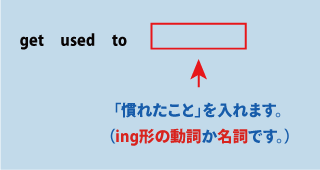
Did you get used to working in the office?
(オフィスで仕事をするのには慣れましたか?)
また、同じような意味で「be used to ~」があります。
これは「~に慣れている。」という意味です。
「get used to ~」は「~に慣れる」というように、不慣れだったものが「慣れる」ことへの変化を意味します。
「be used to ~」は「~に慣れている」というように、その「状態」をあらわします。
「to」の後は名詞またはing形の動詞がきます。
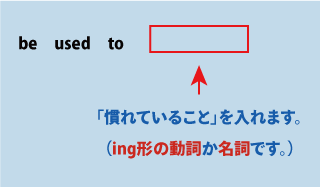
(参考)
同じ意味の表現で「get accustomed to ~」と、「be accustomed to ~」があります。
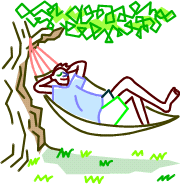
★ポイント2
"I saw a new restaurant, why don't you go there next time?" she said.
「新しくできたレストランを見つけたのだけれど、今度行ってみない?」女の人が話した。
Why don't you ~ は「~しませんか?」という意味で、人を誘う時に使うことができます。
Why don't you の後には動詞がきます。
ただし、これは友人など親しい間でよく使われる表現です。上司など目上の人には使いません。

Are you free next Sunday?
(今度の日曜日は暇ですか?)
I'll be free.
(暇ですよ。)
Why don't you go playing golf next Sunday?
(日曜日にゴルフをしに行きませんか?)
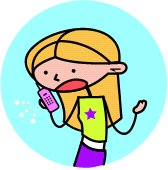
★ポイント3
"Oh, that sounds interesting to me."
「へぇ、おもしろそうだね、行って見ようよ。」
That sounds ~ は、「~のように思われる。」という意味です。
あることを聞いたりして、「~だと思う。」という表現です。
「~」には形容詞などが入ります。

That sounds great.
(それはいいですね)
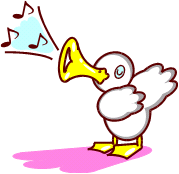
★ポイント4
It's none of your business.
大きなお世話だ。
It's none of your business. は、「大きなお世話だ。」や「かまわないでくれ。」という意味があります。
同じ意味で Mind your own business. というのもあります。
ただし、これらの表現は強い意味がありますので、使うときには注意が必要です。


<今日のメモ>
"We've got to try the new Italian restaurant."
「その新しいイタリアンレストランに行ってみなくちゃね。」
We have got to ~ の「have got to」は、「have to」と同じ意味になります。
人に勧めるときに使うことができます。
"I gotta go, do you want to come? I'll introduce you to Bellini," Pina said.
「そろそろ行かないとならないんだけど、シェリーもくる? ベリーニに会わせてあげるよ。」とピーナが話した。
I gotta go の gotta は「got」と「to」がくっついた言葉です。
"We've got to try the new Italian restaurant."
「その新しいイタリアンレストランに行ってみなくちゃね。」
We have got to ~ の「have got to」は、「have to」と同じ意味になります。
人に勧めるときに使うことができます。
"I gotta go, do you want to come? I'll introduce you to Bellini," Pina said.
「そろそろ行かないとならないんだけど、シェリーもくる? ベリーニに会わせてあげるよ。」とピーナが話した。
I gotta go の gotta は「got」と「to」がくっついた言葉です。
Sherry's Diary の練習問題
半角英数字で解答してください。

慣れる
問題数:3問
練習問題の解説

それをしませんか
問題数:3問
練習問題の解説

そうだと思う、大きなお世話です
問題数:4問
練習問題の解説

ストーリーの確認問題です
問題数:4問
慣れる
問題数:3問
練習問題の解説
それをしませんか
問題数:3問
練習問題の解説
そうだと思う、大きなお世話です
問題数:4問
練習問題の解説
ストーリーの確認問題です
問題数:4問
